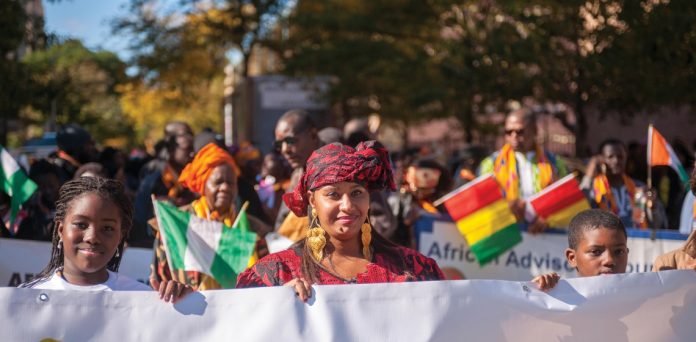Social media is currently abuzz with debates on Ghana’s ‘Year of Return’ vs Nigeria’s ‘Door of Return’. While Nigeria’s ‘Door of Return’ predates Ghana’s ‘Year of Return’, both initiatives draw reference from the transatlantic slave trade and are positioned to repurpose this history to explore new opportunities for the continent.
It all began when the United Nations declared the years 2015 to 2024 as the International Decade for People of African Descent. Since that declaration was made, various initiatives and programmes have launched tapping into this to uplift Africa as a continent. For example, the Most Influential People of African Descent (MIPAD), a global civil society initiative was launched in 2017 by Kamil Olufowobi, to combat racism, xenophobia and intolerance across Africa and towards Africans worldwide.
Similarly, the ‘Door of Return’ is a pan-African initiative that seeks to launch a new era of cooperation between Africa and the diaspora. In August of 2017, Nigeria erected the first symbolic Door of Return monument as part of its Diaspora Festival in Badagry.
Ghana’s Year of Return in 2019 also sought to position the country as a key travel destination for African Americans and the African diaspora. Several events were planned and executed throughout the year and the government built several key development agendas around this initiative as well.
The main objectives of the United Nations declared International Decade for People of African Descent are as follows:
- Promote respect, protection and fulfilment of all human rights and fundamental freedoms by people of African Descent, as recognized in the Universal Declaration of Human Rights;
- Promote a greater knowledge of and respect for the diverse heritage, culture and contribution of people of African descent to the development of societies;
- Adopt and strengthen national, regional and international legal frameworks according to the Durban Declaration and Programme of Action and the International Convention on the Elimination of All Forms of Racial Discrimination and to ensure their full and effective implementation.
More than Shows and Festivals
There is more to be expected and pursued with regards to the Year of Return and other similar initiatives. How do we use the Year of Return to confront the challenges of migration across Africa? How can the diaspora be more of a catalyst for economic growth? How do we effectively address the main objectives of the International Decade? These are pertinent questions that we can begin to answer on the auspices of the Year of Return, Door of Return or whatever theme any other African nation chooses to ride on.
We can begin to explore advancing economic development across Africa through tourism, infrastructure, technology, healthcare, renewable energy and more. These initiatives, as much as they draw a connection to the transatlantic slave trade of centuries ago, can and more importantly, should point to a future of prosperity and stability for the continent. They should serve more as symbols of the continent’s openness to the diaspora, and not as another divisive agent that pits one African country against another.
africa-ontherise.com

Putting a spotlight on business, inventions, leadership, influencers, women, technology, and lifestyle. We inspire, educate, celebrate success and reward resilience.














